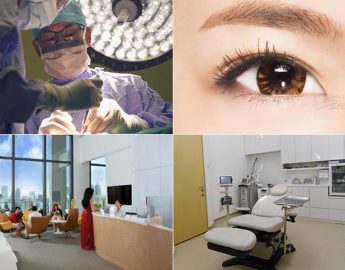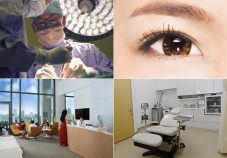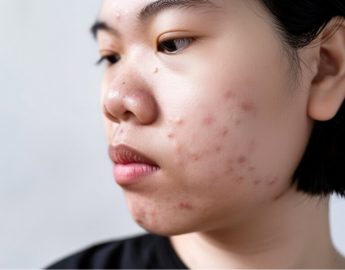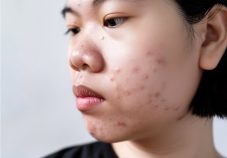It is estimated that 1 in 13 women will develop breast cancer in their lifetime. Breast cancer can occur in women of all ages, although the majority are diagnosed in women above 50 years old. The good news is early detection and treatment can reduce the risk of death from breast cancer. At an early stage, breast cancer can be easier to treat. Regular screening in women 40 years of age and older can lower the breast cancer death rate by up to 50%.
“…early detection and treatment can reduce the risk of death from breast cancer.”
Early detection through regular screening
The Singapore Cancer Society recommends women perform monthly breast self-examinations. They can feel lumps and also have to be aware of unusual signs in the breast. A healthcare professional can also conduct clinical breast examinations.
Consult your doctor, especially if you suspect unusual signs.
| Signs to watch out for in/by your breast area |
| Lump or thickening (also check underarm section) |
| Size/shape change |
| Dimple or puckering in skin |
| Inward nipple |
| Fluid discharge (not milk) |
| Scaly, red, or swollen skin |
| Orange-like dimples in skin |
A mammogram, the breast x-ray, is the standard screening tool for early detection. The mammogram can show signs of a mass before a cancerous growth is of palpable size and before symptoms become apparent.
Older age groups of women are also recommended by the Singapore Cancer Society to undergo mammograms.
- Women aged 40 to 49 undergo a yearly mammogram
- Women above 50 undergo mammogram once every 2 years
Besides detection of abnormalities like a tumour, a mammogram can also indicate the breast density, that is the amount of fibrous and glandular tissues compared with the amount of fatty tissue. A highly dense or dense breast is associated with a higher risk.
Are you at high risk of breast cancer or does your mammogram show abnormal finding/s?
Other tests may be recommended such as breast ultrasound which uses sound waves to form an image of breast tissues that show if a mass is solid or has fluid. Breast magnetic resonance imaging (MRI) uses magnets, radio waves and the computer to get pictorial details of the breasts. Women with suspected growth will undergo a biopsy to check for cancer cells from collected tissues under a microscope.
Treatment options to fight breast cancer
The treatment plan for patients with breast cancer is based on several factors, which include the stage of cancer, tumour characteristics, the individual’s overall health as well as individual considerations.
Here are some common treatments for breast cancer:
Surgery: The surgical operation is performed based on the size of the tumour and where it is situated. Breast-conserving surgery (lumpectomy) removes the cancer and some surrounding normal tissues but keeps the breast while mastectomy removes the entire breast. Radiation therapy, chemotherapy, targeted therapy, or hormone therapy may also be given.
Radiation Therapy: High-energy X-rays are used to destroy cancer cells or suppress cancer cell growth.
Chemotherapy: Drugs are administered to kill cancer cells or prevent their growth.
Hormone Therapy: For tumours that are responsive to hormones, medications are used to block or interfere with hormones that fuel the growth of certain breast cancer cells.
Targeted Therapy: Drugs are designed to specifically target certain proteins in cancer cells. There are different types such as monoclonal antibodies, tyrosine kinase inhibitors, mammalian target of rapamycin (mTOR) inhibitors, PARP inhibitors, that kill the cancer cells, prevent their growth, or keep them from spreading.
Immunotherapy: The body’s immune system that naturally fights diseases is used to kill cancer cells. Immunotherapy helps enhance the body’s response against cancer cells.
In consideration of individual profiles, personalized discussions with your doctor can help determine the treatment options.
Breast cancer impacts the lives of many women. Regular screening is critical to ‘catch’ breast cancer at an early stage when treatment is more effective.
If you have breast cancer, do not lose hope.
The availability of a plethora of options means doctors can personalise treatments to improve outcomes and preserve the quality of life for many patients with breast cancer.
“Speak to your healthcare professional today, about breast cancer screening and treatments.”
References:
- National Cancer Institute. Breast Cancer Treatment (PDQ®)–Patient Version. Available at https://www.cancer.gov/types/breast/patient/breast-treatment-pdq#_190. Accessed on 11 July 2025.
- National Cancer Institute. Breast Health: Follow-up after an Abnormal Mammogram. Available at https://www.cancer.gov/types/breast/breast-changes. Accessed on 13 July 2025.
- What Are the Risk Factors for Breast Cancer? Available at https://www.cdc.gov/breast-cancer/risk-factors/ Accessed on 11 July 2025.
- Singapore Cancer Society. Mammogram. Available at https://www.singaporecancersociety.org.sg/get-screened/breast-cancer/mammogram.html#:~:text=From%20age%2050%20and%20above,be%20visible%20on%20the%20mammogram. Accessed on 11 July 2025.






















 Top 10 Trusted Maid Agencies in Singapore
Top 10 Trusted Maid Agencies in Singapore  The 7 Most Romantic Restaurants in Singapore
The 7 Most Romantic Restaurants in Singapore  5 Best Sofa Cleaning Services in Singapore
5 Best Sofa Cleaning Services in Singapore  10 Best Aircon Services in Singapore
10 Best Aircon Services in Singapore  10 Best House Movers in Singapore
10 Best House Movers in Singapore  10 Best House Cleaning Services in Singapore
10 Best House Cleaning Services in Singapore  Illuminate Spring with Blooms across Lendlease malls
Illuminate Spring with Blooms across Lendlease malls  2XU Compression Run 2025 Singapore
2XU Compression Run 2025 Singapore  Solo Travel and Mental Health: Discovering Wellness Through Independence and Adventure
Solo Travel and Mental Health: Discovering Wellness Through Independence and Adventure  5 Ways to Improve Your Business’s Energy Efficiency
5 Ways to Improve Your Business’s Energy Efficiency  7 Types of Smart Road Solutions That Help Improve Traffic Efficiency and Safety
7 Types of Smart Road Solutions That Help Improve Traffic Efficiency and Safety  7 Best French Restaurants in Singapore to Celebrate Life
7 Best French Restaurants in Singapore to Celebrate Life  5 Best Cake Shops in Singapore for Special Occasions and Everyday
5 Best Cake Shops in Singapore for Special Occasions and Everyday  5 Best American Restaurants in Singapore
5 Best American Restaurants in Singapore  8 Must-See Architectural Marvels in Singapore
8 Must-See Architectural Marvels in Singapore  Live the High Life: Top 5 Luxury Activities in Singapore
Live the High Life: Top 5 Luxury Activities in Singapore  3 Best Fish Spas in Singapore: So Fun & Relaxing!
3 Best Fish Spas in Singapore: So Fun & Relaxing!